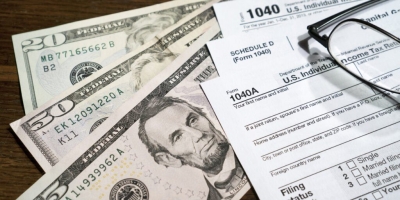Mon - Fri 8:00 - 6:30
Mon - Fri 8:00 - 6:30

A temporary income tax exemption on overtime pay officially expired on June 30 after Alabama lawmakers declined to extend it during the legislative session. The policy, first enacted in 2023, aimed to increase workforce participation and provide additional financial support to hourly workers, particularly in industries such as manufacturing, healthcare, and public safety.
House Bill 467, sponsored by House Minority Leader Anthony Daniels (D-Huntsville), sought to make the exemption permanent by removing its sunset clause. The proposal had bipartisan support and backing from policy groups such as the Alabama Policy Institute, but it failed to advance before the session ended.
Supporters of the exemption, including Daniels, argued the policy had a measurable impact on working families.
In an interview with Yellowhammer News, Daniels emphasized that workers were better able to afford essentials like groceries and tuition due to the extra take-home pay from overtime hours. He framed the policy as pro-growth, citing increased state revenue from corporate and individual income taxes as a sign that the exemption was economically beneficial.
RELATED: Alabama lawmakers weigh future of overtime tax exemption as deadline nears
According to the Alabama Department of Revenue, the exemption provided approximately $386.7 million in total tax relief for hourly workers during its 18-month lifespan, from January 1, 2024, through June 30, 2025. The actual fiscal impact far exceeded initial projections of $40 million per year, with some forecasts estimating that a permanent exemption could have eventually cost the state up to $400 million annually.
Daniels also expressed concern that allowing the exemption to expire amounted to a tax increase on working Alabamians. He questioned whether other forms of tax relief, such as recent grocery tax cuts, would provide as meaningful an impact for middle- and lower-income families. In comments to Yellowhammer News, he noted that reducing the grocery tax by one cent per dollar spent requires $100 in spending to save just one dollar—an amount he said may not significantly ease financial pressure on households.
On the other side of the debate, Republican lawmakers emphasized a preference for broader, more sustainable tax relief.
State Sen. Arthur Orr (R-Decatur), chair of the Senate Finance and Taxation Education Committee, told Yellowhammer News that the Legislature should focus on tax cuts with the widest reach, such as those on groceries. He cautioned against committing to large, permanent tax reductions like the overtime exemption, especially amid uncertain economic conditions.
Orr reiterated that the grocery tax cut would benefit all Alabamians, pointing out that everyone shops for food. He also referenced legislation moving through Congress that could offer overtime tax relief at the federal level. Speaking to WIAT, Orr noted that Alabama has led the way with its 2023 policy and will monitor federal developments before considering future action at the state level.
Daniels, also speaking to WIAT, acknowledged the potential of federal tax relief but said state governments would still need to evaluate how such changes affect local productivity and revenue. He expressed concern that lawmakers did not fully consider these broader implications before allowing the exemption to lapse.
With the exemption now expired, Alabama will shift its focus to other tax measures passed this session. Beginning September 1, tax reductions on groceries, baby products, and feminine hygiene items will take effect, part of a broader effort by lawmakers to implement tax policy changes they believe offer more widespread benefits.
Sherri Blevins is a staff writer for Yellowhammer News. You may contact her at sherri@yellowhammernews.com.
The post Alabama’s overtime tax exemption expires as lawmakers opt for broader tax relief appeared first on Yellowhammer News.